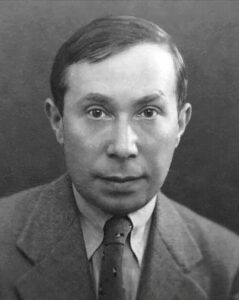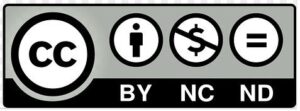Sobre Apología y Critón Strūthiō 012
Parte de:
«Sobre la Apología de Sócrates y el Critón de Platón» / I

Leōnardus Strūthiō (1899-1973)
ĒRVDĪTIŌRIBVS ***
Versiō hispānica Aemiliā Aquadītī auctrīce 12
Sócrates muestra a continuación que en los dos casos en que actuó políticamente estuvo en peligro mortal, puesto que lo hizo conforme a la justicia o la ley. Esto ocurrió una vez bajo la democracia y una vez bajo la oligarquía: él no era demócrata ni oligarca. Se podría considerar extraño que el daimonion no lo hiciera abstenerse de las dos acciones peligrosas. Quizás el daimonion no resulte indiferente al bien y el mal. O, más sencillamente, Sócrates no habría podido evitar las dos acciones. Cuando habla de su acción durante la democracia, identifica al jurado, a todo el jurado, con la Asamblea que perpetró el asesinato judicial de los generales al mando en la batalla de Arginusas. Por consiguiente, cuando al final de este pasaje dice que «tendréis muchos testigos de esas cosas», tal vez sólo se refiera a lo que hizo bajo la oligarquía; de otro modo, la referencia sería irónica (como en 19d1-7). Su prueba de que en las dos acciones políticas se puso del lado de la justicia lo lleva naturalmente a un examen algo implícito de la acusación un tanto tácita que lo hacía responsable de las fechorías de sus supuestos discípulos (en particular, Critias y Alcibíades). Sócrates se limita a negar que hubiese tenido discípulos. Si alguien, ya fuera joven o ya no lo fuese, deseaba escucharlo cuando hablaba y se ocupaba de sus propios asuntos —es decir, cuando filosofaba—, nunca se lo había impedido; tampoco pedía dinero por conversar, sino que se ofrecía para que cualquiera, rico o pobre, le hiciera preguntas y, si querían, podían escuchar lo que decía en respuesta a ellas. Nunca dio enseñanza privada o secreta a nadie. Es cierto que hay algunos jóvenes acomodados que siempre lo acompañan. En rigor, estos no buscan su compañía con el objeto de que los exhorte a la virtud o los haga menos vanidosos, sino porque disfrutan al oír cómo se examina a otros, esto es, a quienes creen ser sabios sin serlo, pues oír esto no es desagradable: no es placentero ser exhortado a la virtud. Sócrates dice que no es desagradable: no lo es no sólo para jóvenes posiblemente frívolos, sino que, simplemente, no es desagradable para él mismo. No afirma nada en el sentido de que ese grato examen consista en preguntar a la gente «¿Qué es?» respecto de las cosas humanas, pero no lo excluye. Sea como fuere, lo que les dice o los induce a decir —ya sea a la gente en general o a sus constantes seguidores en particular—, esto es, lo que hace por la orden del dios que ha recibido a través de oráculos, sueños o cualquier otra manera de dispensación divina (hace tiempo que la respuesta del oráculo de Delfos a Querefonte dejó de ser el único acontecimiento memorable de su vida), no puede llamarse corrupción de los jóvenes. Si corrompió a algún joven, que este se presente, de ser ya mayor, o sus padres u otros, parientes, para atestiguar contra él. Sócrates ve a muchos de ellos en el tribunal. Menciona por su nombre a siete de sus seguidores y a siete de sus padres o hermanos; en total, cita diecisiete nombres. En la enumeración, Platón aparece en compañía de Apolodoro. Pero ninguno de los seguidores ni de sus familiares se presenta como testigo de los acusadores; la razón es obvia: la acusación es falsa. Sócrates no apela aquí al argumento que usó para silenciar a Meleto: que nadie corrompería a otro voluntariamente (25c5 y sigs.).
Perge ad initium paginae huius
Leōnardī Strūthiōnis verba 12
Socrates shows next that in the two cases in which he acted politically, he came into mortal danger since he acted according to right or law. This happened once under the democracy and once under the oligarchy: he was neither a democrat nor an oligarch. One could find it strange that the daimonion did not turn him back from the two dangerous actions. Perhaps the daimonion is not indifferent to right and wrong. Or, more simply, the two actions could not have been avoided by him. When speaking of his action under the democracy, he identifies the Jury, the whole jury, with the Assembly that committed the judicial murder of the generals in command at the battle of Arginousai. Accordingly when he says at the end of this passage that “you will have many witnesses for these things,” he may refer only to what he did under the oligarchy; otherwise the reference would be ironic (as in 19d-1-7). His proof that in his two political actions he stood up for the right leads him naturally to a somewhat muted discussion of the somewhat muted accusation that made him responsible for the misdeeds of his so-called pupils (especially Kritias and Alkibiades). Socrates simply denies that he ever had any pupils. If someone, be he young or no longer young, desired to listen when he spoke and minded his business—i.e., when he philosophized—he never denied this to anyone; nor did he demand money for conversing but he offered himself to be questioned by everyone, rich or poor and, if they wished, they might hear what he said by answering his questions. He never gave private or secret instruction to anyone. It is true that there are some well-to-do young men who always accompany him. They seek his company—not indeed in order to be exhorted to virtue or to be deflated, but because they enjoy hearing how others, namely those who believe themselves to be wise without being wise, are examined, for to hear this is not unpleasant: it is not pleasant to be exhorted to virtue. Socrates says that it is not unpleasant: it is not unpleasant not only for possibly frivolous youths but simply; it is not unpleasant for Socrates himself. He does not say anything to the effect that that enjoyable examination consists in people being asked “what is?” regarding the human things, but he does not exclude it. However this may be, what he says to people or what he leads them to—people in general or his constant followers in particular—i.e., what he does at the god’s command which came to him through oracles, dreams and in any other manner of divine dispensation—the Delphic reply to Chairephon long ago ceased to be the single epoch-making event in his life—cannot be called the corruption of the young. If he corrupted any young men, either they themselves having become older or their fathers or other relatives should come forward and give testimony against him. He sees many of them in court. He mentions seven of his followers and seven of their fathers or brothers by name; altogether he mentions seventeen names. In the enumeration Plato appears in the company of Apollodoros. But none of the followers or their relatives come forward as witnesses for the accusers; the reason is obvious: the accusation is false. Socrates does not have recourse here to the argument which he used for silencing Meletos, namely that no one would voluntarily corrupt anyone (25c5 ff).
Perge ad initium paginae huius
Iūra
El texto en lengua inglesa fue publicado de manera póstuma en un volumen en honor al prof. Jacob Klein: Essais in Honor of Jacob Klein (Annapolī, ē Typographeō Acadēmīae Sānctī Iōhannis MCMLXXVI). Aunque nosotros tomamos como base lo aparecido en una antología dedicada a escritos del prof. Strūthiō en inglés en 1983: Studies in Platonic Political Philosophy (Sicagī, ē Typographeō Ūniversitātis Sicagī MCMLXXXIII). La versión castellana es obra de Aemilia Aquadīs, aparecida en la traducción del volumen mencionado anteriormente (Bonāeropolī, ē Typographeō Amōrrortī MMVIII). La publicación de estos fragmentos promueve la difusión en castellano de la obra del profesor Leōnardus Strūthiō con fines académicos y de formación. Conminamos a visitar su biblioteca más cercana o adquirir el volumen físico en su librería de confianza.

Perge ad initium paginae huius
ĒRVDĪTIŌRIBVS ***
